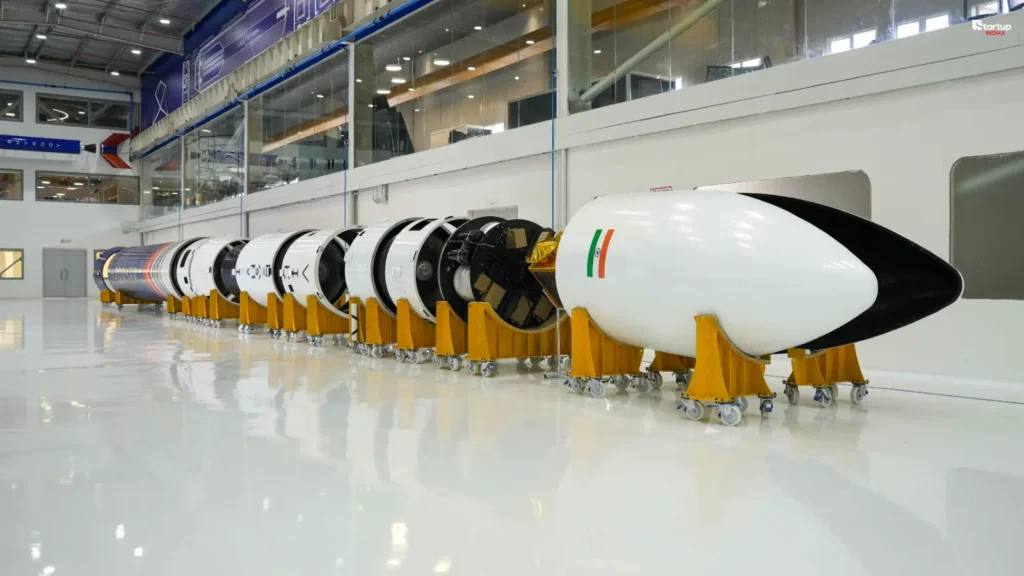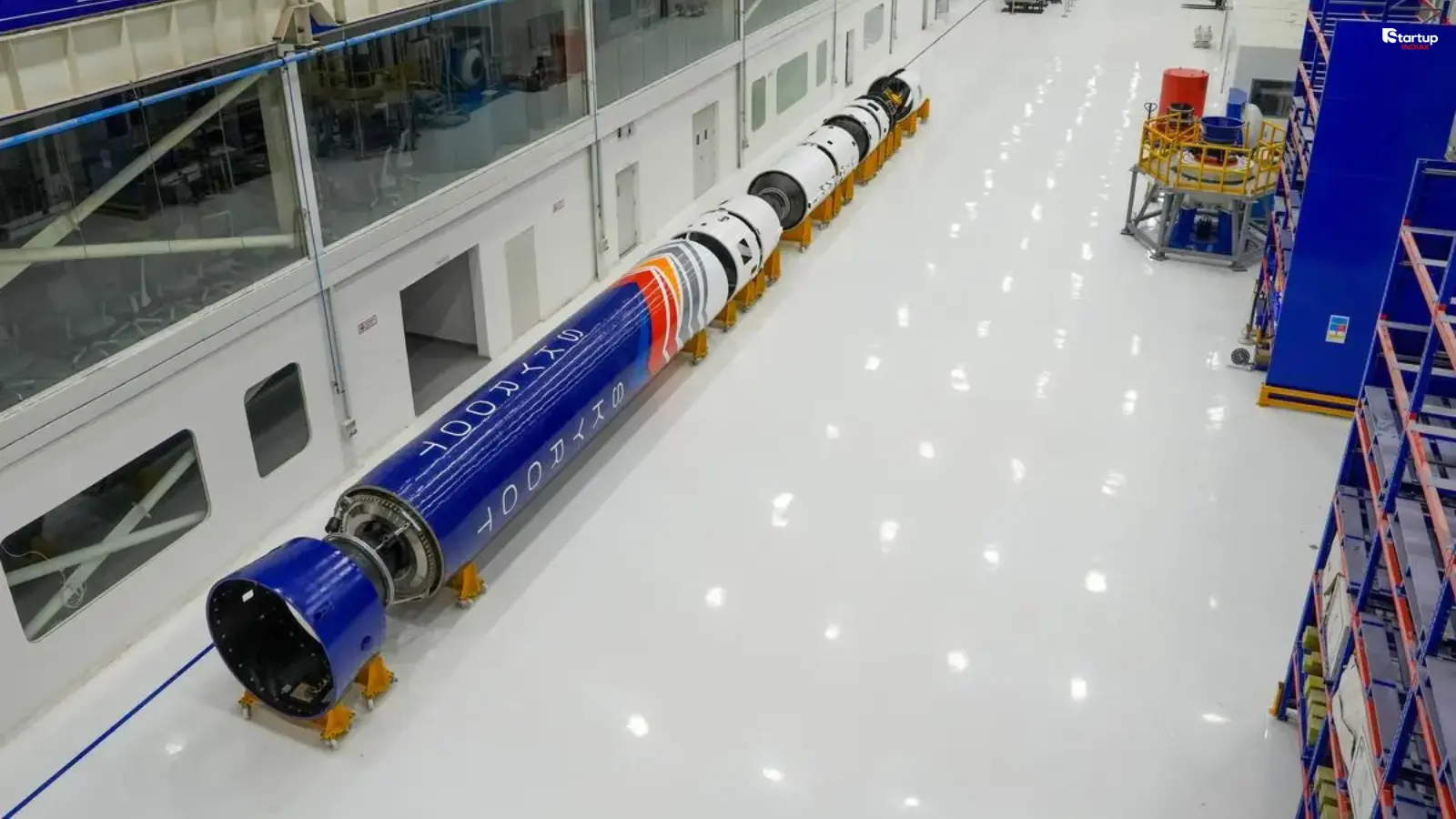Table of Contents
- Skyroot Aerospace plans to launch India’s first private commercial rocket by January 2026
- Former ISRO scientists founded the startup, which has raised USD 95.5 million
- Company targets monthly launches by 2027, profitability by March 2028
Skyroot Aerospace is set to launch India’s first privately built commercial rocket within the next three months, marking a historic moment for the country’s space sector. The Hyderabad-based startup, founded by two former ISRO scientists, plans to send its first full-scale satellite mission into orbit by January 2026. With backing from global giants like Temasek and GIC, Skyroot is positioning itself as India’s answer to SpaceX. Can a homegrown startup really compete on the global stage?
What Makes Skyroot Aerospace’s Rocket Launch Historic?
Skyroot Aerospace isn’t just building rockets. It’s rewriting India’s space story. The company is preparing to launch the country’s first privately developed commercial rocket, a milestone that signals India’s entry into the private space launch market.

Founded in 2018 by Pawan Kumar Chandana and Naga Bharath Daka, both ex-ISRO engineers, Skyroot has already proven its capabilities. In November 2022, it became the first private Indian firm to successfully test a rocket when it launched Vikram-S, a sub-orbital vehicle.
Now, the stakes are higher. The upcoming mission will carry actual payloads from Indian and international clients, positioning Skyroot as a serious player in the global small satellite launch industry.
Read More: How India Can Build a Self-Reliant Drone Manufacturing Ecosystem in 7 Steps
How Fast Is Skyroot Scaling Its Operations?
Speed is everything in the space race. Skyroot plans to conduct one launch every three months in 2026, ramping up to monthly launches by 2027. Each rocket takes eight to nine months to build and costs between USD 2-3 million to manufacture.
The revenue model is equally ambitious. Each launch is expected to generate around USD 5 million, carrying payloads ranging from small satellites to technology demonstrators. With demand for small satellite launches growing globally and SpaceX facing long wait times, Skyroot sees a massive opportunity.
CEO Pawan Chandana told Mint that the company expects to achieve profitability by March 2028, despite facing engineering and supply chain challenges typical of hardware-heavy deep tech startups.
Read More: LAT Aerospace: Can Deepinder Goyal Make Flying Affordable in India?
What’s Fueling India’s Private Space Boom?
Skyroot isn’t alone in this journey. India’s private space industry now includes more than 200 startups, spanning satellite manufacturing, launch services, ground stations, and space data analytics. The Department of Space estimates that India’s space sector could be worth USD 44 billion by 2033.
This growth is backed by policy reforms. The government has opened up space activities to private players, allowed foreign investment, and created IN-SPACe, a regulatory body to enable commercial space ventures. Skyroot has raised around USD 95.5 million (₹850 crore) so far, with major backing from Singapore’s sovereign wealth funds Temasek and GIC.
The company’s Vikram series of rockets are designed specifically for small satellite launches, a segment that’s booming as countries and companies race to deploy satellite constellations for communication, earth observation, and internet connectivity.
Read More: Electric CTOL Aircraft Lands at JFK: 4 Passengers Celebrate Historic Green Victory
Netizens React
The announcement has sparked excitement and debate across social media and tech forums.
One user wrote, “Finally, India has its own SpaceX moment! Skyroot could put us on the global space map in a big way.”
Another commented, “Building rockets is hard. Let’s see if they can maintain the launch cadence they’re promising. Hardware startups are a different beast.”
A third person noted, “With ISRO’s support and private innovation, India could become the go-to destination for affordable satellite launches. This is huge for our economy.”
What do you think about India’s private space revolution? Will Skyroot Aerospace become the SpaceX of India? Share your thoughts in the comments and explore more breakthrough startup stories on Startup INDIAX!
FAQs
What is Skyroot Aerospace?
Skyroot Aerospace is a Hyderabad-based space startup founded by ex-ISRO scientists, preparing to launch India’s first privately built commercial rocket by January 2026.
When will Skyroot Aerospace launch its first commercial rocket?
Skyroot Aerospace is set to launch India’s first private commercial rocket within the next three months, with the first full-scale satellite mission planned for January 2026.
How much funding has Skyroot Aerospace raised?
Skyroot Aerospace has raised approximately USD 95.5 million (₹850 crore) from investors including Temasek and GIC.
How much does a Skyroot rocket cost?
Each Skyroot rocket costs between USD 2-3 million to build and generates around USD 5 million per launch carrying small satellite payloads.
What is India’s space industry worth?
India’s private space sector includes over 200 startups and is estimated to reach a value of USD 44 billion by 2033, according to the Department of Space.

